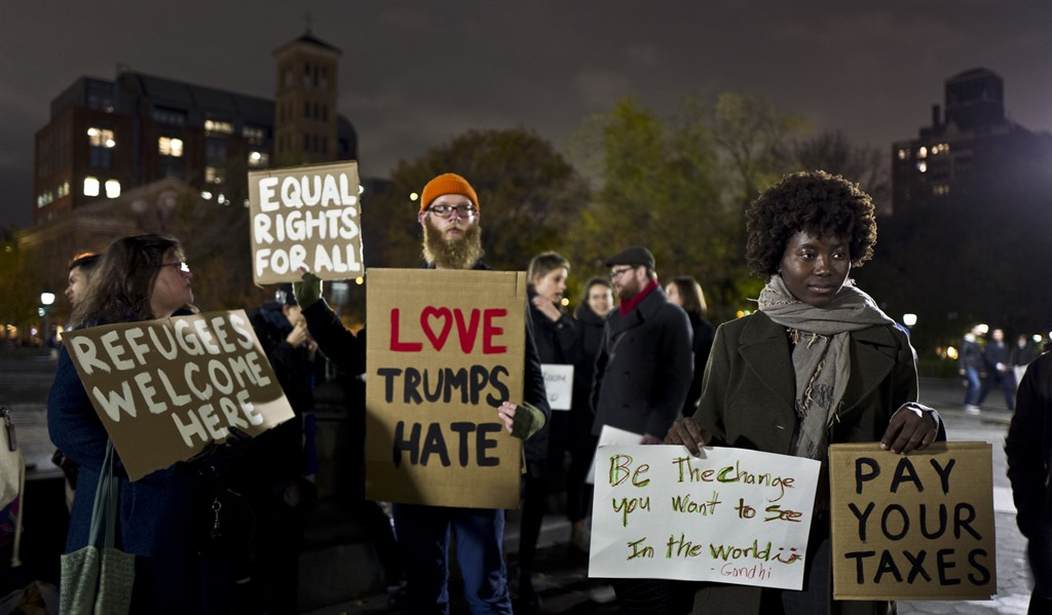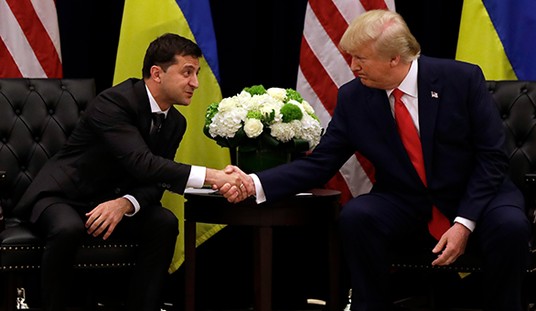The People’s Democratic Republic of Oregon. That has a kind of ring to it, don’t you think? The reason this phrase has crystalized in my mind: Just after it was confirmed that Donald Trump had defeated Hillary Clinton, a petition was submitted for a ballot initiative to have Oregon secede from these United States.
“Oregonian values are no longer the values held by the rest of the United States,” Christian Trejbal, a freelance writer who filed the Oregon Secession Act, told the Oregonian, a Portland-based daily newspaper.
A couple days later the measure was withdrawn but, further south, Californians also have been mulling what some call “Calexit.” Left Coast venture capitalist Shervin Peshevar tweeted: “I am announcing and funding a legitimate campaign for California to become its own nation.”
So could President Donald Trump, like President Abraham Lincoln, find himself using military force to put down the rebels and preserve the union? Let’s hope not. For one thing, the Battle of Beverly Hills would wreak havoc with some exquisitely manicured lawns.
Besides, there’s a better solution. It’s called the 10th Amendment. As you’ll recall from your college civics courses (unless you’re a millennial, in which case you may have avoided reading anything by the Founders, those racist and sexist dead white males) this final item in the Bill of Rights was written by James Madison in response to concerns that, over time, the federal government might become too powerful, thereby threatening individual liberties and self-governance.
The full text is just 28 words long: “The powers not delegated to the United States by the Constitution, nor prohibited by it to the States, are reserved to the States respectively, or to the people.”
When conservatives talk about “limited government” or “smaller government” this is the constitutional bedrock on which they stand. The Founders intended citizens to make important decisions for themselves and as local communities. They had a healthy distrust of remote and centralized power.
Recommended
What if the citizens of Oregon and California make very different choices than the citizens of Kansas and Idaho? That’s the idea. The various states are meant to be laboratories where experiments are conducted. From those that succeed and those that fail, lessons can be learned.
Or not. What might seem like a reasonable tradeoff in Massachusetts might seem like a bad bargain in South Carolina. Another word for this: diversity. Aren’t we all in favor of that?
Powers delegated by the Constitution to the federal government are, as Madison said, “few and defined.” They include national defense, international commerce and, of course, immigration. That implies there should be no “sanctuary cities” operating according to rules of their own. Only on this one issue does the left uphold the 10th Amendment. Writing in The New Yorker, Jelani Cobb calls “liberals invoking states’ rights” in order to implement their own immigration policies “an uncommon development.” Two more precise words: inconsistent and hypocritical.
It should be noted that federalism eroded, to a large extent, in pursuit of a worthy cause: civil rights. After generations of slavery and Jim Crow, some states could not be trusted when it came to African-Americans. States’ rights — which I think should more accurately be called states’ powers, since the Founders believed rights inhere in individuals, not governments — came to be viewed as a means to avoid enforcing equality under the law.
But perhaps it’s time to, as they say, move on. Surely, it’s possible to guarantee all Americans their constitutional liberties while also ensuring “subsidiarity” — the making of decisions at the lowest level possible, the level closet to where citizens live and work, thus enabling them to better hold accountable the politicians to whom they lend power.
Under such circumstances, communities might come together, for example in town halls which, in the old days, were not staged events providing incumbent politicians a way to drive their messages. They were, instead, opportunities for average Americans to discuss, debate and make decisions for themselves and their families.
If power were to be decentralized as the Founders intended, governors, who are among the nation’s most talented and respected elected officials, would begin to have their authority restored rather than increasingly usurped by the White House and bureaucrats — the unelected and ever-growing “administrative state — not to mention lengthening lists of “unfunded mandates” from Washington.
An added benefit: The less money and power in Washington the fewer and less influential will be the lobbyists here.
And, importantly, were the pendulum to start swinging back, there would be an impact on the campaign to persuade Americans to surrender sovereignty to the United Nations and other transnational entities. The same “national progressives” who have succeeded in transferring power from state capitals to the federal capital also are “transnational progressives.” Their goal is to shift power from the United States to what they envision as a “global government” ruling “global citizens” living in a “global society.”
They want to define what constitutes international law and “global norms” and subordinate the U.S. Constitution to such rules. They oppose serious border security — at least for Western nations. This has been among the projects President Obama has been promoting for the past eight years — a key component in his effort to “fundamentally transform” America.
On these issues, President-elect Trump’s supporters, as well as the conservatives and Republicans who did not back his candidacy, are likely to find common ground. As for the good citizens of Oregon, they no longer would need fear being prohibited from living according to Oregonian values should their state remain within the borders of these United States. On the contrary, we will celebrate their diversity.

























Join the conversation as a VIP Member